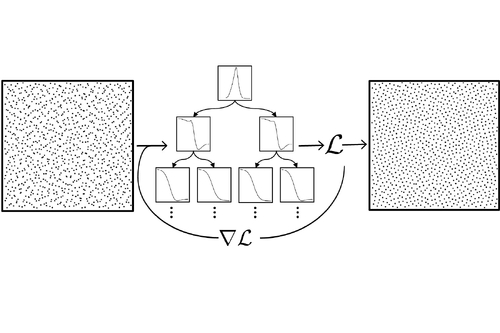Differentiable Owen Scrambling

SessionDifferentiable Rendering
DescriptionQuasi-Monte Carlo integration is at the core of rendering. This technique estimates the value of an integral by evaluating the integrand at well-chosen sample locations. These sample points are designed to cover the domain as uniformly as possible to achieve better convergence rates than purely random points. Deterministic low-discrepancy sequences have been shown to outperform many competitors by guaranteeing good uniformity as measured by the so-called discrepancy metric, and, indirectly, by an integer 𝑡 value relating the number of points falling into each domain stratum with the stratum area (lower 𝑡 is better). To achieve randomness, scrambling techniques produce multiple realizations preserving the 𝑡 value, making the construction stochastic. Among them, Owen scrambling is a popular approach that recursively permutes intervals for each dimension. However, relying on permutation trees makes it incompatible with smooth optimization frameworks. We present a differentiable Owen scrambling that regularizes permutations. We show that it can effectively be used with automatic differentiation tools for optimizing low-discrepancy sequences to improve metrics such as optimal transport uniformity, integration error, designed power spectra or projective properties, while maintaining their initial 𝑡-value as guaranteed by Owen scrambling. In some rendering settings, we show that our optimized sequences improve the rendering error.
Event Type
Technical Papers
TimeFriday, 6 December 20249:11am - 9:23am JST
LocationHall B5 (2), B Block, Level 5







